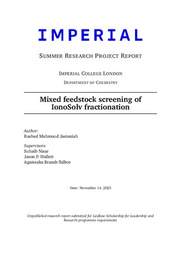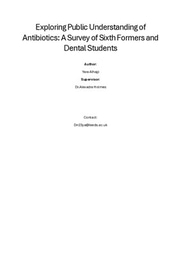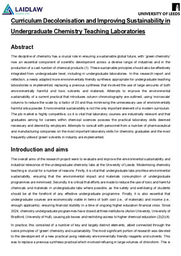Increasing the Accessibility of Chemistry Lab Scripts for Students who don't have English as a Primary Language
🚀 Breaking Barriers in STEM: Making Chemistry Labs Accessible for ESL Students 🧪🌍
Imagine stepping into a chemistry lab for the first time—overwhelmed by unfamiliar equipment, complex procedures, and hazardous materials. Now, imagine that every single instruction is in a language you struggle to fully understand. A daunting experience suddenly becomes even more intimidating.
For the 10-15% of undergraduate chemistry students at the University of Leeds who speak English as a second language, this is their reality. Scientific language is difficult enough for native speakers—so how can we expect ESL students to confidently conduct experiments if lab scripts are filled with dense, jargon-heavy instructions? Misunderstandings in the lab don’t just impact learning—they compromise safety, confidence, and academic success.
💡 My Laidlaw research aimed to change that.
📊 Using linguistic analysis tools, I identified the most confusing technical terms and vocabulary barriers hidden in lab scripts.
📖 I measured readability, comparing it to the English proficiency required for admission—and found that students were expected to work with texts far beyond their language capabilities.
🛠️ I developed practical solutions, including simplified instructions, standardized terminology, and adaptable resources that will now be used in universities around the globe.
This project reinforced a crucial truth: STEM should be for everyone—not just those fluent in academic English.Small changes in how we communicate complex information can make a huge difference in student confidence, performance, and safety. My findings will continue to be developed through further research and shared at national chemistry teaching conferences.
📎 Check out my full report and poster below, I would love to hear your thoughts! Let’s start a conversation about making STEM education more inclusive.
#LaidlawScholar #STEMEducation #BreakingBarriers #ChemistryForAll #ESLStudents #InclusiveScience





Please sign in
If you are a registered user on Laidlaw Scholars Network, please sign in